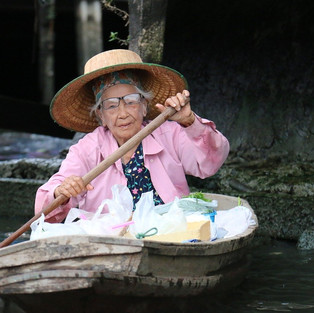Elderhood: A New Paradigm for the Third Stage of Life
- Katharine Esty

- Jul 1, 2020
- 3 min read
Louise Aronson, a geriatrician and a professor of medicine at the University of California, San Francisco, wants to reimagine being old as a time of possibilities. Her book, Elderhood - Redefining Old Age, Transforming Medicine, and Reimagining Life is important, and I want you to know about it. Her ideas about a third stage of life are compelling—and not just because I share her mission of reimagining old age.

Aronson describes her book as both a battle cry and a lament.
She notes that people are living longer than ever before; the shift is dramatic. In medieval times, the average life expectancy was in the early 30s. In 1750, only 20% of people in colonial America lived to be 70 years old. Now a whopping 80% of us make it to 70. Our changing demographics mean the perception of ‘old’ has also shifted over time. One economist at Stanford, John Shoven suggests we are ‘old’ when we have a 2% or higher chance of death in the next year. Using that measure, men are ‘old’ today at 65 and women at 73.
Culture determines treatment of elders
Old people are treated differently among cultures. In some, they are revered and treated with the greatest respect. In the USA, growing old is universally dreaded. Most everyone wants to look young, act young, and be perceived as younger than they are. Many of us expect our lives to be pleasant until we reach late middle age. Then we expect everything to take a downward turn and become unremittingly difficult.
Left to right by: Jake Heckey, Tania Dimas, & Toản Dương, images from Pixabay.
Aronson disagrees. (And of course, so do I). Her research finds this gloomy outlook is just not factual. She finds many old people today, people in their seventies, eighties, and even nineties are happy, useful, and relevant. They retain what she calls their agency.
Despite this reality, most people, cling to negative, inaccurate stereotypes about what being old means. A professor at Berkeley medical school always begins a new class by asking what associations the students have to old, as in an old person. Year after year, his classes come up with weak, fragile, feeble, slow, and sick. Interestingly, when he asks for their associations to an elder, the most frequent response is wise, but, also, leader, experience, power, and money. A totally different picture. These stereotypes influence how people interact with old people. Many research reports find that numbers of old people often feel ignored, discounted, marginalized, and even invisible.
Since many people in the U.S. will live for 30 or 40 years as an old person, Aronson believes we need to revise our image of old age as well as how we relate to older people. It no longer makes sense to define life as having just two stages -- childhood to adulthood. She has identified a third stage of life, a third act if you will. And like a drama, this third act can have a climax, a denouement, and resolution.
Descriptions of old people matter
Aronson says our language has an impact too. We need new language because of the pervasive negative associations to ‘old’. She suggests using the word elder for an old person and elderhood for this stage of life after middle age. She sees adulthood going from 20 to 60 and elderhood going from 60 to 100 and beyond. Doesn’t this paradigm make a lot of sense?

As a doctor, she is outraged at the lack of training about older people in medical schools where there is little study of old people. She envisions a time where every specialty includes training in children, adults, and elders.
Using the three-stage paradigm of Childhood, Adulthood, and Elderhood recognizes the full trajectory of our lives. I believe just increasing awareness of the length of elderhood, and the many years people today are spending as elders, will start to bring about changes in attitudes. Our beliefs about aging become self-fulfilling prophecies. If we see elderhood as a time of promise, we will make it so. What our last years look like, is up to us.

I recommend Elderhood for those of you who are interested in a critique of contemporary medicine and a good read. She is a trained writer and the book contains hundreds of stories from her experiences in the field.












I am sure you will find Elderhood very informative and interesting as I did.
Another book, The Third Chapter by Sarah Lawrence-Lightfoot, was published some time ago, and it was inspiring. Yet, throughout the whole book I was really struck with how the population she was talking about was made up of financially secure women who could make decisions according to their passions and set earning money (or even budgeting) aside. This just isn't realistic for most people - very elitist - and so it left me cold. The one you describe sounds more well-rounded, not just about rich women living their dreamy 3rd chapter. I will check it out. Thanks!